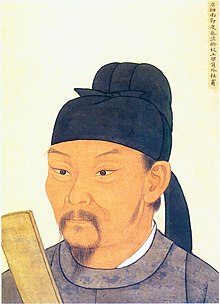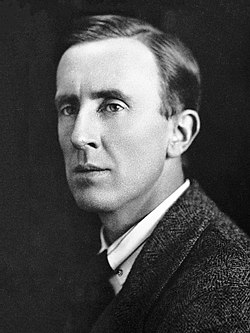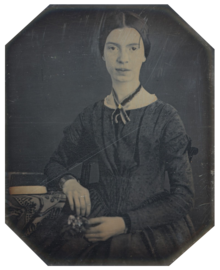Portal:Literature
Introduction

Literature is any collection of written work, but it is also used more narrowly for writings specifically considered to be an art form, especially novels, plays, and poems. It includes both print and digital writing. In recent centuries, the definition has expanded to include oral literature, much of which has been transcribed. Literature is a method of recording, preserving, and transmitting knowledge and entertainment. It can also have a social, psychological, spiritual, or political role.
Literary criticism is one of the oldest academic disciplines, and is concerned with the literary merit or intellectual significance of specific texts. The study of books and other texts as artifacts or traditions is instead encompassed by textual criticism or the history of the book. "Literature", as an art form, is sometimes used synonymously with literary fiction, fiction written with the goal of artistic merit, but can also include works in various non-fiction genres, such as biography, diaries, memoirs, letters, and essays. Within this broader definition, literature includes non-fictional books, articles, or other written information on a particular subject. (Full article...)
General images -
Candide, ou l'Optimisme is a French satire first published in 1759 by Voltaire, a philosopher of the Age of Enlightenment. It begins with a young man, Candide, who is living a sheltered life in an Edenic paradise and being indoctrinated with Leibnizian optimism (or simply Optimism) by his mentor, Pangloss. The work describes the abrupt cessation of this lifestyle, followed by Candide's slow, painful disillusionment as he witnesses and experiences great hardships in the world. Voltaire concludes with Candide, if not rejecting optimism outright, advocating a deeply practical precept, "we must cultivate our garden", in lieu of the Leibnizian mantra of Pangloss, "all is for the best in the best of all possible worlds".
Candide is characterised by its sarcastic tone, as well as by its erratic, fantastical and fast-moving plot. A picaresque novel with a story similar to that of a more serious bildungsroman, it parodies many adventure and romance clichés, the struggles of which are caricatured in a tone that is mordantly matter-of-fact. Still, the events discussed are often based on historical happenings, such as the Seven Years' War and the 1755 Lisbon earthquake. As philosophers of Voltaire's day contended with the problem of evil, so too does Candide in this short novel, albeit more directly and humorously. Voltaire ridicules religion, theologians, governments, armies, philosophies, and philosophers through allegory; most conspicuously, he assaults Leibniz and his optimism.
Selected excerpt
| “ | It was the best of times, it was the worst of times, it was the age of wisdom, it was the age of foolishness, it was the epoch of belief, it was the epoch of incredulity, it was the season of Light, it was the season of Darkness, it was the spring of hope, it was the winter of despair, we had everything before us, we had nothing before us, we were all going direct to Heaven, we were all going direct the other way—in short, the period was so far like the present period, that some of its noisiest authorities insisted on its being received, for good or for evil, in the superlative degree of comparison only. | ” |
| — Charles Dickens, A Tale of Two Cities | ||
More Did you know
- ... that although J. R. R. Tolkien translated the Old English poem Beowulf in the 1920s, he did not like the result so it was published only posthumously in 2014 as Beowulf: A Translation and Commentary?
- ... that the 1928 Hindi novel Nirmala uses fiction to promote social reform of the dowry system in India?
- ... that although Crown Duel's fictional setting of Sartorias-deles is most like New Zealand, its customs and fashions were inspired by the court of Louis XIV?
- ... that Crown Princess Yaza Datu Kalaya is the subject of some of the "most beautiful poems in Burmese literature" by her nephew and husband Natshinnaung?
- ... that as a young girl, Margaret George became interested in Cleopatra because they both had dark hair, and later wrote a best-selling novel about her?
Selected illustration
Did you know (auto-generated) -

- ... that Rudaki is acknowledged as the founder of New Persian poetry in Iran and the father of Tajik literature in Tajikistan?
- ... that Sheila Egoff, Canada's first professor of children's literature, returned to her library work immediately after retirement?
- ... that Polish Renaissance poet Jan Kochanowski – considered "the founding father of Polish literature" – wrote threnodies, the first Polish-language tragedy, and epigrams?
- ... that literary critic Qian Xingcun brought several Communist writers into the Shanghai film industry?
- ... that Soviet German literary critic Richard Knorre was injured in an explosion during the siege of Leningrad?
- ... that the exclusive secret society Hamilton House from the television show Gossip Girl was based on St. Anthony Hall, a social and literary fraternity?
Today in literature
- 1572 - William Strachey, English writer born
- 1774 - Oliver Goldsmith, English writer died
- 1785 - Bettina von Arnim, German writer born
- 1846 - Comte de Lautréamont, French writer born
- 1858 - Remy de Gourmont, French poet born
- 1888 - Zdzisław Żygulski, Sr., Polish literary historian born
- 1902 - Stanley G. Weinbaum, American science-fiction author born
- 1914 - Marguerite Duras, French writer born
- 1928 - Maya Angelou, American writer born
- 1948 - Dan Simmons, American writer born
Topics
| Literature: | History of literature · History of the book · Literary criticism · Literary theory · Publishing |
| By genre: | Biography · Comedy · Drama · Epic · Erotic · Fable · Fantasy · Historical fiction · Horror · Mystery · Narrative nonfiction · Nonsense · Lyric · Mythopoeia · Poetry · Romance · Satire · Science fiction · Tragedy · Tragicomedy · more... |
| By region: | African literature · Asian · European · Latin American · North American · Oceanic |
| By era: | Ancient literature · Early medieval · Medieval · Renaissance · Early Modern · Modern |
| By century: | 10th century in literature · 11th · 12th · 13th · 14th · 15th · 16th · 17th · 18th · 19th · 20th · 21st |
| Recent: | 2018 in literature· 2017 · 2016 · 2015 · 2014 · 2013 · 2012 · 2011 · 2010 · 2009 · 2008 · 2007 · more... |
Categories
Related portals
| Concepts: | |
| Genres: | |
| Religions: |
Things you can do
Related WikiProjects
WikiProjects related to literature:
| Concepts: | Biographies · Books · Comics · Magazines · Manga · Novels · Poetry · Short stories · Translation studies |
| Genres: | Alternate history · Children's literature · Crime · Fantasy · Horror · Mythology · Romance · Science fiction |
| Authors: | Honoré de Balzac · Roald Dahl · William Shakespeare |
| Series: | Artemis Fowl · Chronicles of Narnia · Discworld · Harry Potter · His Dark Materials · Hitchhiker's Guide to the Galaxy · Inheritance Cycle · James Bond · King Arthur · Middle-earth · Percy Jackson · Redwall · A Series of Unfortunate Events · Shannara · Sherlock Holmes · A Song of Ice and Fire · Star Wars · Sword of Truth · Twilight · Warriors · Water Margin · Wizard of Oz |
| Regions: | Australian literature · Indian literature · Persian literature |
Associated Wikimedia
The following Wikimedia Foundation sister projects provide more on this subject:
-
Commons
Free media repository -
Wikibooks
Free textbooks and manuals -
Wikidata
Free knowledge base -
Wikinews
Free-content news -
Wikiquote
Collection of quotations -
Wikisource
Free-content library -
Wikiversity
Free learning tools -
Wiktionary
Dictionary and thesaurus

















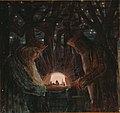


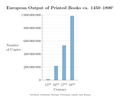











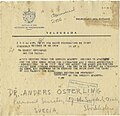


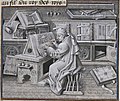




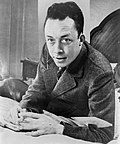



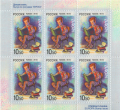


























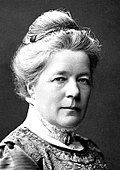














![Image 1 Portrait of Rădulescu, by Mișu Popp Ion Heliade Rădulescu or Ion Heliade (also known as Eliade or Eliade Rădulescu; Romanian pronunciation: [ˈi.on (h)eliˈade rəduˈlesku]; 6 January 1802 – 27 April 1872) was a Wallachian, later Romanian academic, Romantic and Classicist poet, essayist, memoirist, short story writer, newspaper editor and politician. A prolific translator of foreign literature into Romanian, he was also the author of books on linguistics and history. For much of his life, Heliade Rădulescu was a teacher at Saint Sava College in Bucharest, which he helped reopen. He was a founding member and first president of the Romanian Academy. Heliade Rădulescu is considered one of the foremost champions of Romanian culture from the first half of the 19th century, having first risen to prominence through his association with Gheorghe Lazăr and his support of Lazăr's drive for discontinuing education in Greek. Over the following decades, he had a major role in shaping the modern Romanian language, but caused controversy when he advocated the massive introduction of Italian neologisms into the Romanian lexis. A Romantic nationalist landowner siding with moderate liberals, Heliade was among the leaders of the 1848 Wallachian revolution, after which he was forced to spend several years in exile. Adopting an original form of conservatism, which emphasized the role of the aristocratic boyars in Romanian history, he was rewarded for supporting the Ottoman Empire and clashed with the radical wing of the 1848 revolutionaries. (Full article...)](http://upload.wikimedia.org/wikipedia/en/d/d2/Blank.png)


